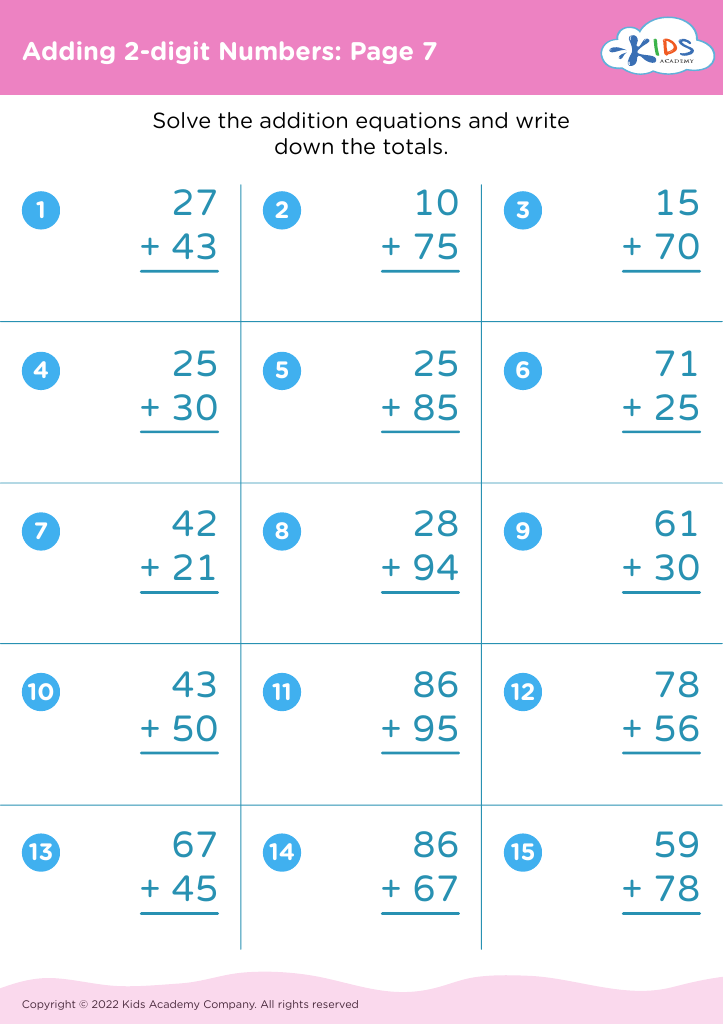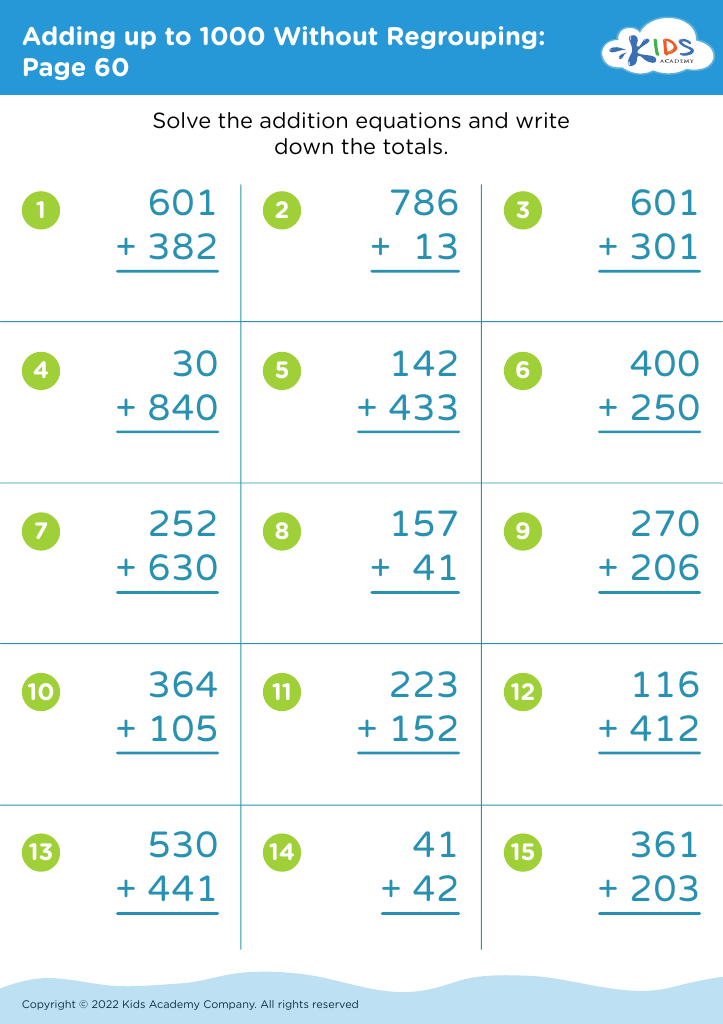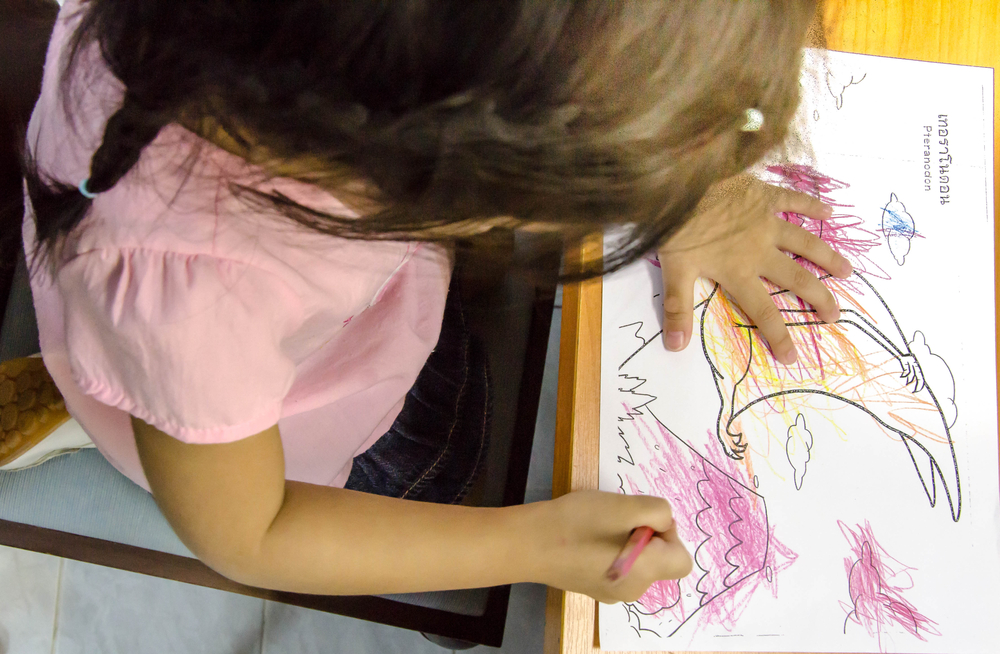Learn addition Math Worksheets for Ages 6-9
3 filtered results
-
From - To
Discover the perfect resource to boost your child’s math skills with our "Learn Addition Math Worksheets for Ages 6-9." Our expertly designed worksheets offer engaging and interactive exercises that help young learners grasp basic addition concepts with ease. These printables combine fun and education, featuring colorful visuals and relatable problems to keep kids motivated. Tailored to match their developmental stage, our worksheets offer gradually increasing challenges to ensure steady progress. Perfect for classrooms, homeschooling, and extra practice at home, these worksheets lay a solid foundation for future math success. Make learning addition enjoyable and effective with our thoughtfully crafted resources.
Parents and teachers should care about teaching addition math to children aged 6-9 because it lays a crucial foundation for future mathematical learning and everyday problem-solving skills. During these early years, children's brains are highly receptive to new information.
Mastering addition helps 6-9 year-olds develop a sense of numbers and arithmetic operations, promoting cognitive development. These basic mathematical skills are essential; they not only readies children for more advanced mathematical concepts but also instills confidence and competence, both academically and in real-world contexts.
Addition is integral to many day-to-day activities, such as managing money, cooking, or planning, and proficiency in this area enhances a child’s ability to navigate these tasks efficiently. Early exposure to addition encourages curiosity, logical thinking, and patience, which are vital traits for lifelong learning.
Furthermore, practicing addition can enhance a child's memory, attention, and analytical skills, contributing to overall cognitive development. Strong foundational skills in math also have a positive impact on children's performance across other academic subjects like science and technology.
In essence, focusing on addition during the early grades sets children up for success, fostering a positive relationship with math that can last throughout their educational journey and beyond.























